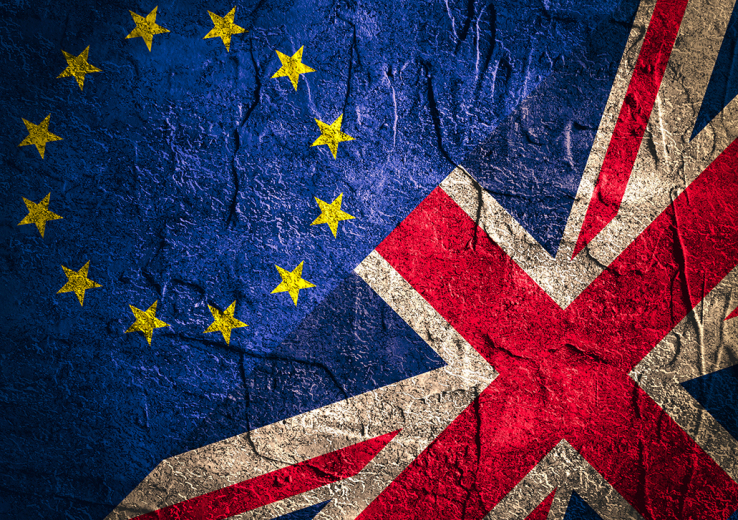Facebook’s Brexit probe unearths three Russian-bought “immigration” ads

Facebook has provided more details about the extent of Russian digital interference related to the UK’s Brexit vote last year.
Last month the social media giant confirmed that Russian agents had used its platform to try to interfere in the UK’s referendum on EU membership — but said it had not found “significant coordination of ad buys or political misinformation targeting the Brexit vote”.
Today’s findings apparently bear out that conclusion, with Facebook claiming it’s unearthed just three ads and less than $1 spent.
The Brexit related Russian-backed ads ran for four days in May, ahead of the UK’s June referendum vote, and apparently garnered around 200 views on Facebook.
It says the ads targeted both UK and US audiences — and “concerned immigration”, rather than being explicitly about the UK’s EU referendum vote.
Which appears to be in line with the strategy Kremlin agents have deployed in the US, where Russian-bought ads have targeted all sorts of socially divisive issues in an apparent attempt to drive different groups and communities further apart.
The Brexit-related ads were paid for by the same Russian-backed 470 accounts that it previously revealed spent ~$100,000, between June 2016 and May 2017, to run more than 3,000 ads targeting US users.
And Facebook linked these accounts to Russia as a consequence of its investigation into Kremlin interference in the wake of the 2016 US presidential election.
For the Brexit audit, it’s worth noting that Facebook appears to have only looked at identified Internet Research Agency (IRA) pages or account profiles — IRA being the previously unmasked Russian troll-farm — so there could be scope for other Russian-backed accounts to have bought ads intending to meddle with Brexit without Facebook realizing it. (Although given the levels of ad buys by IRA accounts targeting US Facebook users it’s perhaps unlikely there’s a second layer to the Russian political dis-ops campaign. Albeit still possible.)
It also does not look like Facebook has attempted to measure and quantify non-paid Brexit-related disinformation posts by Russian-backed accounts — since it’s only talking in terms of “funded advertisements”. We’ve asked and will update this post with any response.
Update: TechCrunch understands that since the scope of the Electoral Commission enquiry relates to activity funded by Russia, Facebook has — thus far — limited its Brexit scrutiny to ad buys. (Thereby making its scrutiny pretty limited.)
We’ve also asked Facebook to share the three Russian-bought “immigration” ads, and to confirm whether they were anti-immigration in sentiment.
So far the company has provided us with the following extract from a letter to the Electoral Commission as commentary on its findings:
We strongly support the Commission’s efforts to regulate and enforce political campaign finance rules in the United Kingdom, and we take the Commission’s request very seriously.
Further to your request, we have examined whether any of the identified Internet Research Agency (IRA) pages or account profiles funded advertisements to audiences in the United Kingdom during the regulated period for the EU Referendum. We have determined that these accounts associated with the IRA spent a small amount of money ($0.97) on advertisements that delivered to UK audiences during that time. This amount resulted in three advertisements (each of which were also targeted to US audiences and concerned immigration, not the EU referendum) delivering approximately 200 impressions to UK viewers over four days in May 2016.
An Electoral Commission spokesperson we contacted for a response emphasized that its discussions with social media companies are at a very early stage.
The spokesperson also confirmed that Google and Twitter have both also provided information in response to its request they do so, to feed its ongoing enquiry into whether the use of digital ads and bots on social media might break existing political campaigning rules.
In a statement, the spokesperson added: “Facebook, Google and Twitter have responded to us. We welcome their cooperation. There is further work to be done with these companies in response to our request for details of campaign activity on their platforms funded from outside the UK. Following those discussions we will say more about our conclusions.”
At the time of writing Twitter and Google had not responded to a request for details of the information they have passed to the Electoral Commission — which late last month Twitter said it would be providing “in the coming weeks”.
Update: Twitter has now released its own Russian-bought Brexit ads report — saying it found six ads, and a total spend of just over $1k. (Though it also has not yet released any information about non-paid Russian-backed propaganda — i.e. bots and their free-to-post tweets — which were likely a lot more plentiful than actual ads.)
A recent academic study of tweet data — looking at how political information diffused on Twitter’s platform specifically around the Brexit vote and the US election — identified more than 156,000 Russian accounts which mentioned #Brexit.
The study also found Russian accounts posted almost 45,000 messages pertaining to the EU referendum in the 48 hours around the vote.
Update: A Google spokesperson has now provided the following response — claiming not to have found any evidence of Russian disinformation ops. “We took a thorough look at our systems and found no evidence of this activity on our platform,” they told us.
Social media’s still unaudited role in political campaigning looks set to remain in the domestic spotlight for the foreseeable future — as the Commission continues to investigate.
Though it remains to be seen whether the body will recommend amending UK law to better regulate political activity on digital platforms.
The UK’s Prime Minister waded into the disinformation debate herself last month by publicly accusing the Russian government of seeking to “weaponize information” by planting fake stories and photoshopped images to try to sow discord in the West.
And the so-far disclosed extent of Russian divisive content targeting the US electorate — which in October Facebook admitted could have reached as many as 126 million people — should give politicians in any democracy plenty of pause for thought about major tech platforms.











